The new government wants to give Metro Mayors and their Combined Authorities more powers and a bigger say in how local rail services are run. Peter Plisner considers what could happen.
In this article:
The new government wants to give Metro Mayors and their Combined Authorities more powers and a bigger say in how local rail services are run. Peter Plisner considers what could happen.
In this article:
- Labour’s government accelerates devolution, empowering regions through Combined Authorities and enhanced metro mayor roles.
- The English Devolution Bill aims to transfer more transport control to local governments for regional planning.
- Metro mayors and local leaders advocate for local rail governance to integrate services and stimulate economic growth.
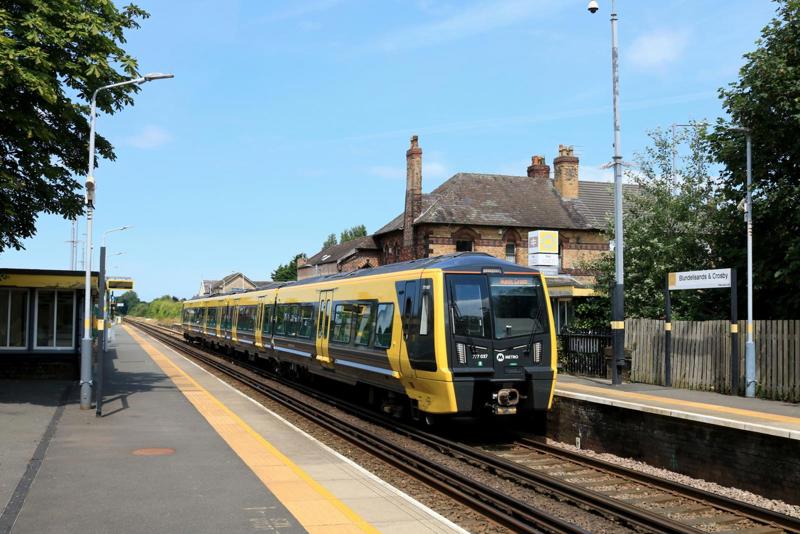 Metro Mayors, Combined Authorities, devolution deals and devolved powers! The new Labour administration has aspirations to move more power into the regions.
Metro Mayors, Combined Authorities, devolution deals and devolved powers! The new Labour administration has aspirations to move more power into the regions.
While the Conservative government advanced devolution with the creation of Metro Mayors and new Combined Authorities, following the July election things have certainly moved up a gear.
Just days after his landslide victory, Prime Minister Sir Keir Starmer hosted a gathering of the Metro Mayors. A theme of that Downing Street meeting was a greater level of devolution. Greater Manchester Mayor Andy Burnham described it as “businesslike”, with mayors keen to show they are ready to deliver.
Days later, Deputy Prime Minister Angela Rayner pledged to kick-start a new “devolution revolution” to transfer power out of Westminster and into the hands of “local people”.
In her first letter to local leaders, Rayner urged regions without devolved power to “partner with the government to deliver the most ambitious programme of devolution this country has ever seen”.
Before the election, Labour had published its Getting Britain Moving - Labour’s Plan to Fix Britain’s Railways, which stated that while a single guiding mind was essential, it was also vital that “national and regional governments and mayors have the power to integrate local railways with other transport modes. They need the ability to create unified transport networks that serve their cities and regions.”
The document also pointed to a statutory role for local leaders: “While the rail network is integrated nationally, and governance must reflect the need to balance and integrate local, commuter, regional, national and high-speed services, there must also be a statutory role for devolved leaders in governing, managing, planning and developing the rail network, to bring decision making as close as possible to local communities.”
More details came in the King’s Speech. While the Rail Reform Bill was there, so too was the English Devolution Bill.
A briefing note stated that “devolved areas now account for almost half of England’s population”, adding: “Westminster does not have the local knowledge, capacity and flexibility needed to take advantage of every opportunity available in every place.”
But even before the election, change was already happening. West Midlands and Greater Manchester had signed ‘trail-blazing devolution deals’ offering (in the previous government’s words) a “deeper” level of devolution that promised new partnership arrangements with Great British Railways.
And a framework for how these partnerships could work was already being worked up by the GBR Transition Team.
Some partnerships already existed - including the ‘Grand Rail Collaboration’ in the West Midlands. But these don’t always give the Combined Authorities the influence they want.
Andrew Scott, GBR’s Director - Regional Partnerships, says: “The railway is difficult to engage with at times and there are multiple parties, each with a different lever that they can pull. It’s sometimes difficult for local authorities to deliver their local objectives and get the support of the railways.”
GBR appears to have been focusing on ways of creating partnerships without the need for full asset devolution of the maintenance and renewal of the track and signals, and the power to hire and fire.
In Liverpool, where the Combined Authority lets the contract to run the trains, Mayor Steve Rotheram is thinking about full integration.
“I suppose that the whole lot means the whole lot, doesn't it? It would mean the signals and the track, and the land, because that’s really important as well. We could do a lot of developments, but that’s not at this stage. That’s very, very complicated.”
The current arrangements seem to be a minefield of legal agreements and responsibilities between different parties.
Network Rail is station landlord, and track and system owner and operator.
Add the train operating company (TOC) as the train lessor, maintainer, crew employer, timetable planner, station lessor and operator, station staff employer, fares setter, and marketing authority.
Network Rail has a safety certificate, and each TOC has a safety certificate. Safety certificates are serious - a duty holder can be fined or even jailed if things go wrong.
Plus, there are still the TUPE - Transfer of Undertakings (Protection of Employment) - arrangements for staff transferring to a new organisation, ticket revenue allocation, depots, and maintenance crews.
Despite the complications, Rotheram still sees full devolution delivering enhancements to the network.
“There hasn’t been a lot of investment in signalling across the whole country, I wouldn’t have thought, for decades. Now they’ve got digital signalling, and I know that if we took that over in our area, we would have to bear the cost of the whole transformation. But it would give us much more capacity.”
Any deals for full devolution would have to come with a devolved budget.
Like other areas, Mayor Rotheram wants to introduce more services to improve connections across the Liverpool City Region. Last year, he signed a Memorandum of Understanding with the previous government which he described at the time as a “massive moment” and the start of a “new wave of devolution”.
So, how quickly can the new government change things to simplify the system?
“The government can do anything if they bring in new laws,” says Tammy Samuel, partner at law firm Stephenson Harwood.
“The Bill is the first step in undoing privatisation, with the default that operation [of the trains] goes back into the public sector. The Bill shows you that they can do things quite quickly in not very many words.”
Anit Chandarana, Group Director at Network Rail, says: “What I’ve witnessed in our own decentralisation journey in Network Rail is the benefit it’s given to our regional MDs and our route directors on having local accountability.
“They feel that they’re held more to account by local councils and local politicians. We’ve clearly got more to do, but it shows the power of local people.”
It feels like going back in time. In the 1980s, metropolitan Passenger Transport Authorities had a big say about what happened on the local rail network through revenue-sharing agreements. But that all stopped at privatisation.
What’s most likely to happen now are framework arrangements that give control to a local area, while securing the benefits of having an integrated rail body.
GBR’s Andrew Scott makes it clear, however, that there’s a balance to be struck: “What we don’t want to do is re-fragment the railway into political geographies. And yet at the same time the railway needs to be responsive to local leaders.”
Tammy Samuel says: “In London, you have Transport for London running the Elizabeth line stretching outside the capital, and you have the London Mayor dealing with services that go into other regions.
“I think that becomes exacerbated when you think of places like Manchester and Birmingham, where there are lots of lines from other areas, and they don’t have that self-contained network.”
One place that has achieved major improvements without devolution is the Tees Valley.
These improvements include investment at Darlington and Hartlepool stations. But there are still no direct services between the two stations, which Alan Weston, Head of Transport at the Combined Authority, says is a major constraint.
“We’re using a lot of our capital investment to put money into the rail industry, and therefore the opportunity to have a greater say in how services operate is important for us,” he says.
“For us, it is about working closely with the operators. At the moment, taking on the revenue risk would be challenging and need careful consideration.”
One example is discussions with Northern about providing better services to the Teesworks redevelopment area. The former steelworks site has two stations close by. British Steel Redcar station has no services, and South Bank only has an hourly train.
As one of the smaller Combined Authorities, for Tees Valley and Mayor Ben Houchen it’s a case of watching what happens elsewhere when it comes to having more control of the trains.
There is still some concern that a new GBR monolith, such as the Department for Transport, might want to control centrally.
But the Urban Transport Group (UTG), which lobbies on behalf of city regions, seems confident that greater devolution will happen.
Tobyn Hughes, Director of Transport at the North East Combined Authority, also leads on rail at the UTG.
“We have a new government now, and we have the ‘English Devolution Bill’ coming through, which should afford more powers and responsibility to Mayors,” he says.
“Certainly, we need more responsibility for our own funding, to deliver local priorities and shift the programme around as we see fit.
“We need, from government, a multi-year settlement where we can plan ahead with confidence about the funding that’s coming in. We also need as little bureaucracy with Whitehall as possible.”
NR’s Anit Chandarana agrees that funding is crucial to any devolution deal: “If we’re talking about taking greater control, I think there also has to be an element of the money flowing with it.
“One of the really big lessons learned for me is, if you only have the accountability for service without also having the accountability for the money, it can lead to some unintended outcomes. That’s fundamentally, for me, the reason why GBR works.”
Perhaps prompted by Greater Manchester Mayor Andy Burnham’s wish to take over stations, Labour’s Plan for Fixing the Railways also suggested there was land value potential in unused rail-owned land, which it said “could leverage sources of private capital and generate new income streams”.
It added: “Integrating transport projects with housing increases their financial viability, through the sale of residential land plots with planning permission to housebuilders. Such projects would support economic growth and jobs, and deliver much-needed affordable housing across the country.”
Burnham talks of a “transport revolution” - including his Bee Network, which includes trams and buses, and which could throw its arms around the region’s rail network in the coming years. He wants to create a London-style transport system with fully contactless tap-in, tap-out payments by March next year.
The West Midlands has similar aspirations, although unlike Manchester there’s no immediate talk of taking over the ownership and operation of stations.
The West Midlands Rail Executive (WMRE) is focusing on local control of services serving the region, and the simplification of fares.
It was already pushing to end evening peak fares in Birmingham. They had been brought in by the train operator in 2010, but WMRE believes the time is right to create consistency across all public transport modes and reduce complexity for passengers.
Someone who’s no stranger to devolved rail arrangements is Mal Drury-Rose, Executive Director, Rail, at WMRE. He has held similar positions at both the Liverpool City Region Combined Authority and the Welsh government.
“We think there’s extra capacity from the new fleet and we need to get people back onto trains, especially as peak commuting is still well down on pre-COVID levels,” he says.
“With pay-as-you-go ticketing also on the way, having both simpler fares and easier ticketing will encourage greater use of the network.
“We’re actively discussing with DfT and GBRTT the right solution for the West Midlands, building on Transport for West Midlands’ extensive experience of operating the largest smart ticketing scheme outside London. This is a potential test case of devolution in action.”
It would seem that the devolution lights are all green. But will the express train start slowing down when GBR and local leaders start putting in their bids?
Steve Rotheram hopes not: “I’m an impatient… I won’t say the word, but it begins with B. But I really am. I just want things to happen so quickly here, because we’ve had a decent transport network, compared with some other areas in the country.
“I was an MP, so when I was in the capital, I saw the way their transport system operates. And then you come back, and you say ‘we’re not second-class citizens’.”
Most agree that there can’t be a ‘one size fits all’ approach.
The UTG’s Tobyn Hughes says: “There is a spectrum or a smorgasbord offering. It will be for each city region and their mayor to push what they think is right for them. What is right in the North East might be different to what they do in London, or what they want in Liverpool and Manchester.”
The railway faces a line-up of strong-willed metro mayors with four-year terms and a new big-majority government covering the same period.
WMRE’s Mal Drury-Rose warns: “If we don’t act now, we could lose the opportunity. And that’s something I don’t want to see.”
Login to continue reading
Or register with RAIL to keep up-to-date with the latest news, insight and opinion.



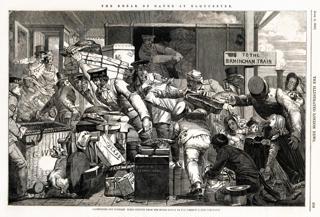
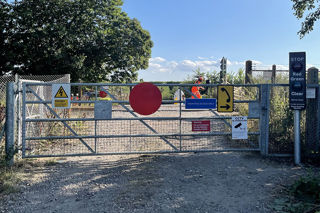
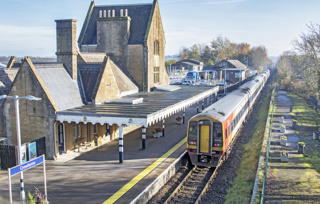
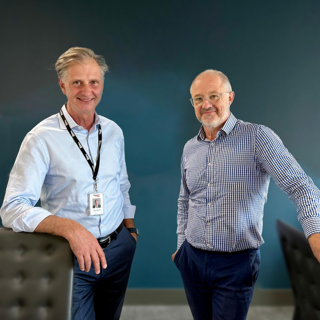











Login to comment
Comments
No comments have been made yet.